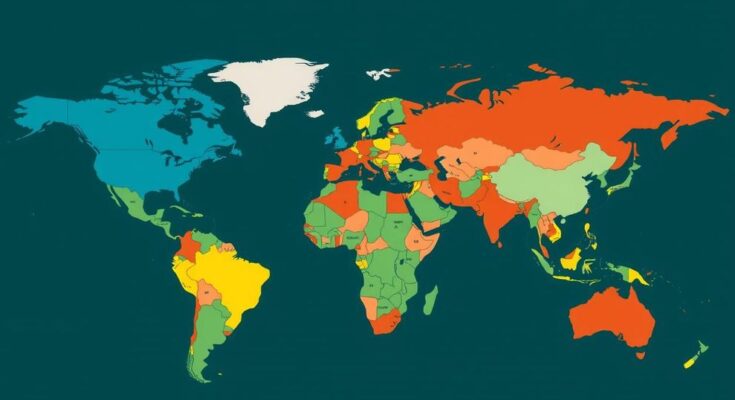Wealthier countries are beginning to compensate poorer nations for climate-related damages through a newly established fund. Cyclone Freddy devastated Malawi, prompting aid measures such as cash payments to affected individuals like Christopher Bingala. At the COP29 summit, discussions continue on the allocation and adequacy of the pledged compensation, which many experts warn will be insufficient as climate disasters worsen.
In March 2023, Cyclone Freddy wreaked havoc across southern Malawi, leading to widespread destruction including the flooding of homes. Christopher Bingala, a subsistence farmer, faced the dire consequence of losing his house and livestock as floodwaters inundated his property. Fortunately, he received a payment of approximately $750 as part of a new compensation initiative aimed at addressing climate change-related disasters. This payment allowed him to rebuild his home, highlighting a significant emerging response to climate-induced damages, particularly for those in low-income countries.
The recent agreements made at the COP29 climate summit in Baku, Azerbaijan, are pivotal as wealthier nations fulfill their responsibility to aid poorer nations grappling with the repercussions of climate change. As the impacts of severe weather events become increasingly pronounced, climate experts warn that the pledged $720 million lacks sufficiency to meet the escalating need for loss and damage funding. Currently, negotiation continues regarding the extent of financial support owed to developing countries, with emphasis placed on the nature of these funds and their intended purposes.
Malawi is currently a beneficiary of a pioneering program designed to provide cash relief to those affected by climate disasters, with financial support from Scotland via the non-profit organization GiveDirectly. Approximately 2,700 families received grants that are significantly impactful in a region where average annual income is low. This funding mechanism illustrates how tailored financial assistance can enable affected populations to recover and rebuild while contributing to a larger systemic approach addressing loss and damage from climate change.
As natural disasters intensify, the need for robust funding to support at-risk communities in developing nations is growing exponentially. The Commonwealth of the Bahamas’ Prime Minister Philip Davis alluded to the financial implications of climate events, citing that his country’s national debt has escalated due to recovery efforts from storms like Hurricane Dorian. With estimates predicting loss and damage funding requirements soaring to $250 billion annually by 2030, it is critical for richer nations to recognize their role and invest adequately to mitigate future humanitarian crises.
Climate change has disproportionately affected low-income countries, causing severe weather phenomena such as hurricanes, floods, and droughts. These nations, which contribute minimally to global pollution levels, bear the consequences of climate change primarily attributed to wealthier industrialized countries. The concept of loss and damage funding aims to address this disparity by providing financial assistance to developing nations suffering from climate-related disasters. Financial commitments have been made at international summits, reflecting a growing awareness of the need for a dedicated support system for vulnerable populations affected by climate disruption.
The emergence of loss and damage compensation signals a crucial shift in addressing the impacts of climate change on vulnerable populations, particularly in low-income countries. As natural disasters continue to escalate, the collective responsibility of wealthier nations to provide adequate financial support is indispensable. The ongoing developments at the COP29 summit and the practical implementations in countries like Malawi illustrate the potential of direct cash assistance to aid recovery and resilience-building in affected communities, necessitating sustained commitment and action from global leaders.
Original Source: www.wosu.org




